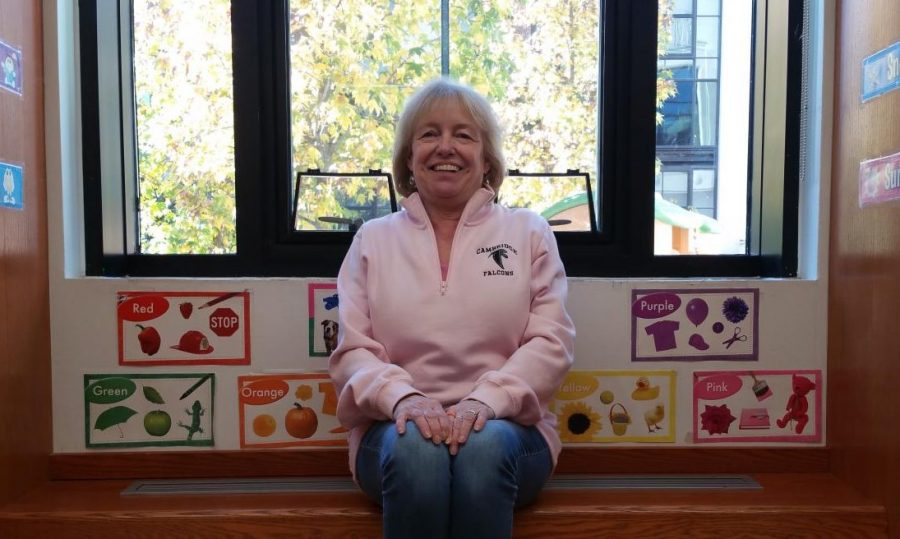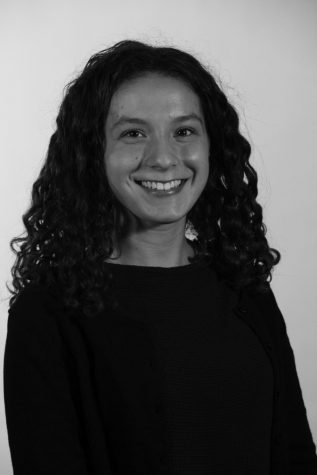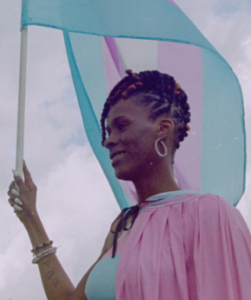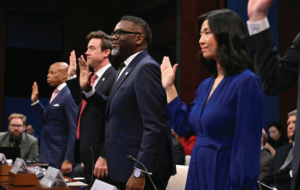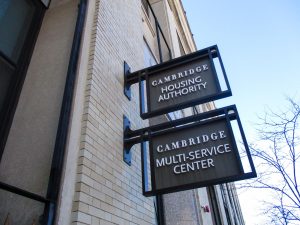Behind the Scenes: First Steps Daycare Caregivers
Joanne “JoJo” Musto is one of the caregivers who works at First Steps.
October 31, 2018
“I believe that my job is for comfort, care, getting [the children] ready to move on, and just loving,” says Robin “RoRo” Hayes, as she holds a toddler in her lap. Hayes is one of the lead teachers at CRLS’ daycare, First Steps.
She and the other caregivers at First Steps—Joanne “JoJo” Musto, Karen Thomas, Nicole Garber, and Denise Belloste—move easily around the bright, toy-filled room, welcoming each child as they arrive for the day and chatting with them as they play.
In between answering questions for the Register Forum, Hayes gets up to open the door for children and their parents. “What, sweetie? I know, you want a snickety snack? Oh my goodness, you do?” she coos to one child sitting on her lap. Thomas says to another child, “Say firetruck,” and Hayes responds, “Karen, she wouldn’t say nothing for nobody yesterday except for you.”
Completely free for students, First Steps was created in 1983 to allow teen parents to raise their children while continuing their education and simultaneously learning to parent. However, there are fewer and fewer teen parents at CRLS these days—something Hayes attributes to Cambridge’s changing demographics and improved, more accessible birth control methods. Now, the majority of children at First Steps are the children of CPS faculty.
“Back in the day when it was [just for] the teens, we were also teaching the teens how to parent their children. … They were also children, so we also took on that role of parenting them and their children,” she says. “Now, it’s much different. We’re just support for parents [who] are also teachers.”
Hayes says that caring for the teens could look like anything from waking the teens up in the morning by calling them on the phone, making sure their babies are clothed and fed, and ensuring that the teen and their child have a place to go when they leave the daycare. “We [were] really like grandparents to a whole lot of children,” she notes.
These days, a normal day at First Steps begins with free play time as parents drop off their children and talk with the caregivers. Sometime mid-morning, the caregivers gather all the children for “circle time” to sing songs. Hayes says that young children respond better to songs than to plain words (“It catches their ear,” she explains), so she often sings during potentially rocky transitions as well. After circle time, the caregivers set up structured activities for each of the children to do, which often have some sort of theme (like fall, for instance). The children end their day by going outside to play, eating lunch, and taking a nap.
While the daycare has changed significantly from its early days, its central philosophy of “peace, love, and care” has stayed consistent. “[We] try to make it a family atmosphere,” says Hayes. “That’s mainly what we do down here. We’re not into doing that math and that English and all that— just peace, love, and care.”
Mr. Kussner, a math teacher at CRLS, has a daughter at First Steps. He initially felt uneasy about sending his 16-month old daughter to daycare, but he wrote in an email to the Register Forum, “My fears were allayed as soon as I met the wonderful women caring for the children. They immediately welcomed my daughter with warmth and positive energy, making her feel comfortable with her new surroundings.”
First Steps is a small daycare, and so children of different ages are cared for together in two multi-age classrooms. The youngest children at First Steps are eight-weeks-old and the oldest children are three. With such a diverse range of ages and levels of development, Hayes says that it can be difficult to make sure every child is engaged and learning new skills, but that she and the other caregivers always make sure to have an activity set up that will interest the older children if the caregivers need to support the younger ones.
Despite this challenge, Mr. Porreca, a Special Education teacher in 9th grade English classes at CRLS, thinks that the fact that his six-month-old baby interacts with three-year-olds every day is one of the daycare’s benefits. “I think there’s a lot of learning that can happen there,” he says. Mr. Porreca and Ms. Porreca, a chemistry teacher at CRLS, have had an overwhelmingly positive experience at First Steps. “What makes First Steps wonderful is not actually the proximity to us at work, it’s the people who are there,” Mr. Porreca says. “There’s never a time when I go down there, or when we go down there, that they don’t seem to be—even when exhausted, because it’s exhausting work—having fun, smiling, and creating a positive environment for kids.”
This piece also appears in our October 2018 print edition.

